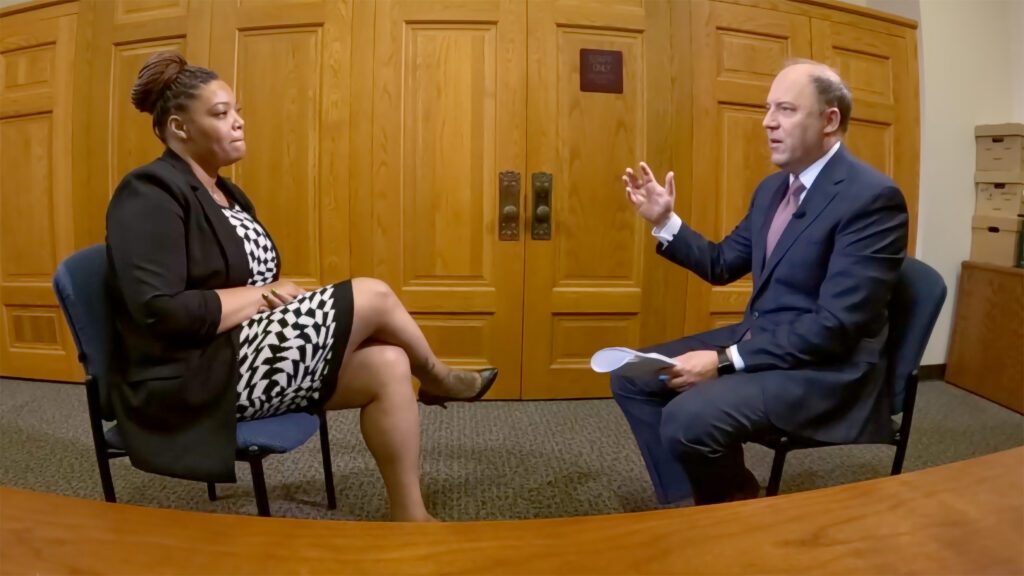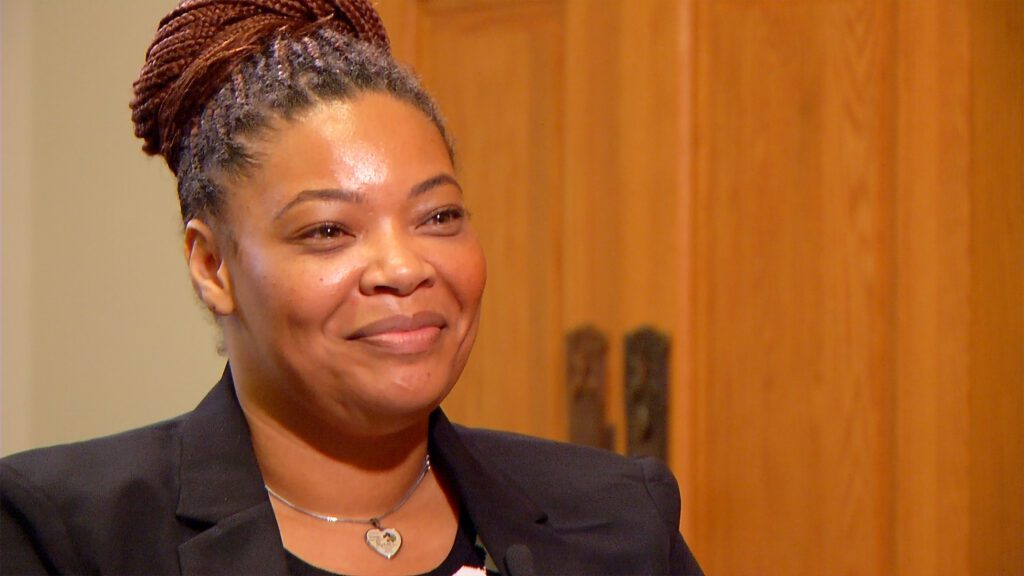‘Doing the right thing’: New civil rights director talks priorities in Minneapolis
Michelle Phillips is taking over as civil rights director for the City of Minneapolis at a critical time.
In addition to overseeing five divisions in her office — from Labor Standards Enforcement to the Office of Police Conduct Review — Phillips is also tasked with leading the city’s compliance with court-ordered police reforms coming from the state and the federal government.
Mayor Jacob Frey fired Phillips’ predecessor, Alberder Gillespie, earlier this year over concerns about her ability to help carry out the city’s responsibilities under a settlement agreement with the Minnesota Department of Human Rights.
Now, Phillips is also looking to hire a permanent director of the Minneapolis Office of Police Conduct Review after the resignation of John K. Jefferson.
Phillips comes to Minneapolis from Oakland, California, where she served as that city’s first inspector general. She was previously the deputy inspector general in Baltimore.
The following interview with 5 EYEWITNESS NEWS is edited for clarity and length.

Going back to when you went before the city council, you had a comment where you said ‘Why Minneapolis? Why not?’
Why Minneapolis?
“I think it’s time. There is appetite for change, there is support for change and I really feel the energy here. When I talk to stakeholders, when I talk to community, they’re ready. And I’m ready and willing to provide whatever I can provide as we wage a path forward. So, for me, it was ‘Why not Minneapolis?’ It’s Minneapolis’ time and I wanted to be a part of that.”
How’s it going?
“It’s going. I cannot complain. Coming in just having a lot of the support of the enterprise as well as the staff, the mayor, the city council — It’s been good. A learning opportunity. And I’m just full steam ahead.”
For somebody who has no idea, what is your job? What is your mission?
“Our mission is really to kind of safeguard and ensure that we are protecting the civil rights and civil liberties of the residents that we serve.”
“If there are any allegations of discrimination based on a protected class, we have our contact information on the website. Please feel free to email us as well. We want to educate and inform and be proactive in that way, but to also hold people accountable through our investigative authority.”
“It’s Minneapolis’ time and I wanted to be a part of that.”
-Civil Rights Director Michelle Phillips
We know Minneapolis is going through a tumultuous time when it comes to the relationship between certain communities and the police department. We are all still impacted by the killing of George Floyd – Where were you at that time?
“I was in Baltimore at that time… It was very disheartening and discouraging for me as a person who is a practitioner of oversight in this work. But it also kind of just highlighted opportunity to help to train, to have some emotional intelligence, regroup, reset, and to level-set our mission and vision when it comes to law enforcement responses as well as community trust, transparency, and accountability.”
But you’re also a human being. Were you mad?
“I definitely had emotions about what happened. You know, any life lost, in any capacity, is problematic… and I think we needed to sit with that emotion. I definitely had to sit with that emotion at that time, but also understanding that as we, as a nation, start to wage a path forward to heal, I think that’s very important.”
Did you come in with a plan for your first 90 days? What’s top of mind?
“What I wanted to do was come in and do a needs assessment. I didn’t come in with a plan, per se, because I don’t know what I don’t know. Of course, anecdotally, there may need to be some hiring. There may need to be some restructuring, potentially. So, I just wanted to get in and see what we have, see what we need in order to make sure that our department as a whole is successful.”
The settlement agreement with the Minnesota Department of Civil Rights — Do you have a gameplan for how the city is going to comply with this order?
“I am working collaboratively with our partners within the city enterprise. So, that’s everyone from the City Attorney’s Office, of course MPD, as well as our enterprise leadership.”
Are you getting cooperation?
“Absolutely. I cannot say anything negative whatsoever. They have been timely in communications, helping to give me access to what I need to inform our work, as we have responsibilities in the settlement agreement. So, we’re waging a path forward, I’m getting up to speed and I do want to highlight that I’ve had nothing but cooperation.”

There are a number of people who are cynical about all of this. We’ve talked to a lot of them who say they don’t think this is going to change anything. What do you say to them?
“I think it’s unfortunate that they feel that way, but we can all be part of the solution. We can all move forward and if there’s any challenges they see, please feel free to call our office. We definitely have no problem answering questions when it comes to potential allegations of police misconduct waged by members of the public.”
Oakland had a lot of challenges. What was your experience there like and how does that help you here?
“Oakland was a very very unique place to be. And to be the first inaugural Inspector General. It was building a ship while I was also trying to sail it, but there was definitely appetite for change.”
“Building up the office was a little bit of a challenge, but I was excited to do it… I had no problems working with the police department or the monitor. I had no problems making sure I communicated with the stakeholders.”
It clearly wasn’t always smooth sailing. How are you going to handle that when the next controversy pops up here?
“It comes with the work. I think setting expectations for yourself — And I’m very, very realistic in understanding that this work isn’t for everyone. But it’s for the folks that are committed to change and making sure the community has a voice, making sure that we’re doing the right thing all the time regardless of the consequences and even if that means standing by myself and doing the right thing. That’s something that I will do.”
Do you hope to be here for a long time? Two years, five years, ten years?
“I am committed to doing this work. And as long as I am able to continue to do it in a way that aligns with what we need to do — missions, visions and values — I’ll be here.”